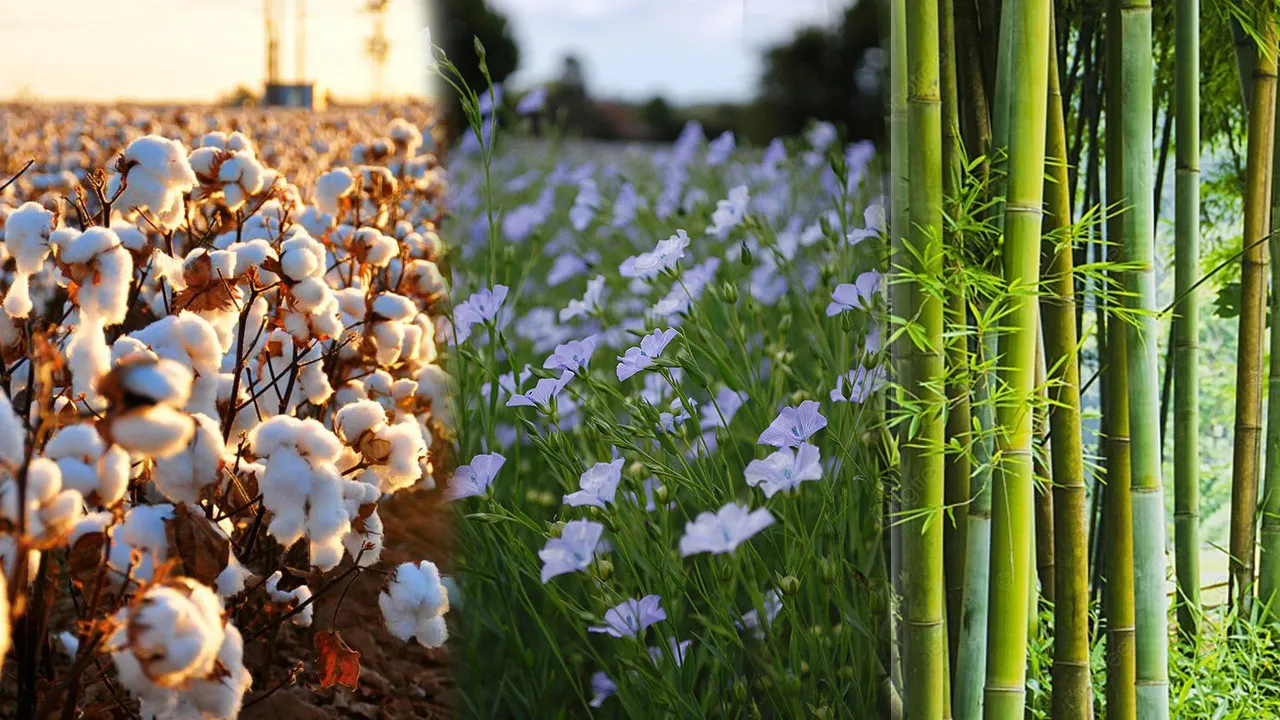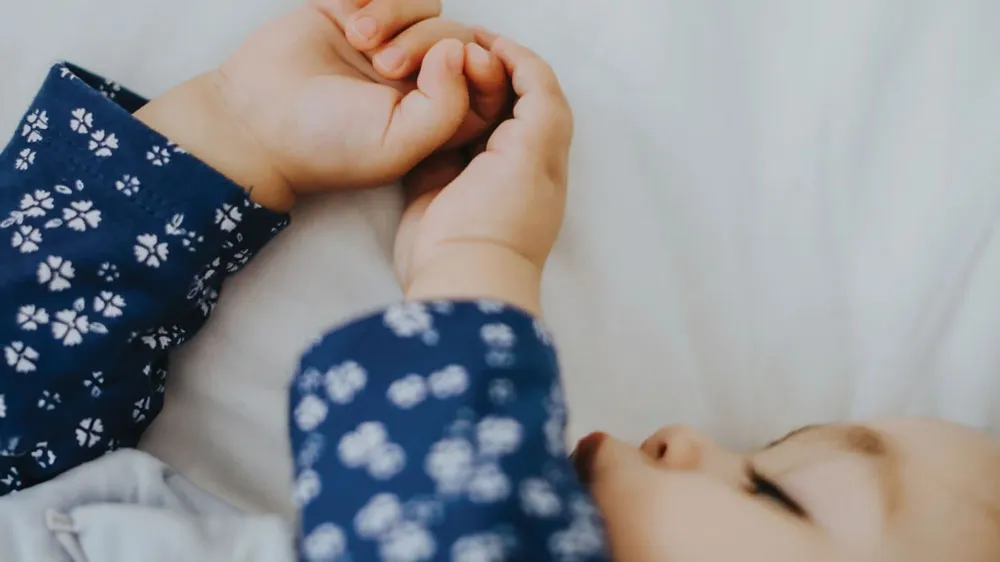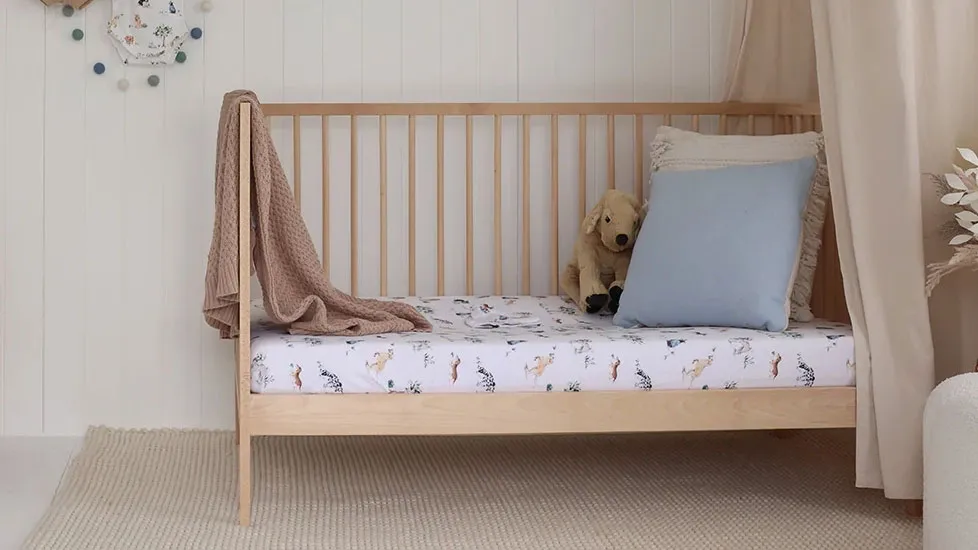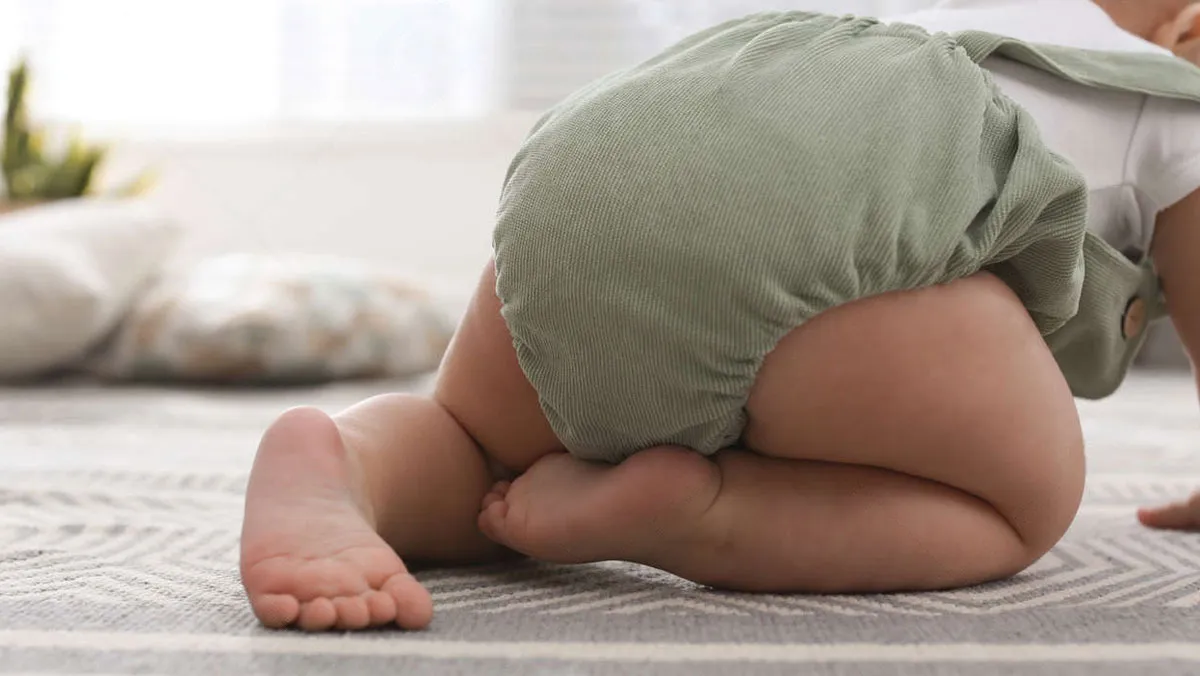How to Choose the Right Baby Cot Sheets
Like a quality cot mattress and protector, the proper baby cot sheets are essential for a night of safe and comfortable sleep. They’re more than just a decorative touch – they’re the final layer in contact with your baby’s delicate skin during those crucial hours of rest and growth.
Your baby’s skin is highly sensitive, absorbing everything from its sleep environment. Natural fabrics like organic cotton and bamboo are the best choices. They’re breathable, hypoallergenic, and regulate temperature naturally.
On the other hand, synthetic materials like polyester can trap heat and cause discomfort. Investing in high-quality cot sheets (around $200 for a complete set) means better sleep for your little one over the next 2-3 years. And when your infant spends 16+ hours daily in their cot-fitted sheets, isn’t their comfort worth it?
Our recommendations for cot sheets
Our evaluations and recommendations remain objective, based solely on design quality, price value, and materials used to offer you the best cot sheets. These suggestions represent just a glimpse of the many options available—as each baby is unique, explore our article to discover if those adorable baby cot sheets that caught your eye will be ideal for your little one's comfort.
Our evaluation criteria will help you determine whether that cute design you spotted will perfectly meet your baby's specific needs and sleep environment.
Sleep society
French Linen Cot Sheet
Premium French flax linen fitted baby sheet offering exceptional breathability that softens beautifully with every wash. It is thoughtfully designed with deep sides and sturdy elastic for unwavering security all night. OEKO-TEX is certified and completely chemical-free for pure, natural comfort in all seasons—a luxury for discerning little sleepers.
- Cover:100% French Linen
- Waterproof:Elegant Pastel Colors
- Wadding:GOTS
Sacred Bundle
Cute Organic Cotton Cot Sheet
GOTS-certified organic crinkle cotton fitted baby sheet delivering cloud-soft breathability: adorable fruit patterns and timeless neutral options to complement any nursery. Chemical-free production guarantees zero harmful substances touch the baby's delicate skin. Includes reusable organic cotton mesh storage bag for eco-conscious parents.
- Cover:100% Organic Cotton
- Waterproof:Cute Pattern & Neutral Colors
- Wadding:GOTS
Ergo Pouch
Organic Moss Fitted Sheet
An ultra-gentle fitted baby sheet is made from organic cotton. GOTS-certified and endorsed by the Eczema Association for sensitive skin. The reinforced elastic rim ensures perfect positioning throughout the night. Available in soothing nature-inspired colours with certified non-toxic dyes. Pure comfort from bassinet to single bed sizes.
- Cover:95% Organic Cotton, 5% Elastane
- Waterproof:Colors & Cute Pattern
- Wadding:GOTS
Snuggle Hunny
Kittens Organic Cotton Cot Sheet
An adorable organic cotton fitted baby sheet with a charming kitten pattern printed using non-toxic dyes creates a whimsical nursery atmosphere. The versatile design fits standard, oval, round, and rectangular cots without bunching or loosening. It includes a matching organic storage pouch. Naturally breathable for year-round comfort and peaceful sleep.
- Cover:95% Organic Cotton, 5% Elastane
- Waterproof:Original Pattern
- Wadding:GOTS
Kiin Baby
Soft Organic Cotton & Bamboo Fitted Cot Sheet
A fitted baby sheet blending 70% bamboo and 30% organic cotton is naturally hypoallergenic and antibacterial for sensitive skin. Its stretchy yet durable construction ensures a perfect fit that lasts. Available in gentle pastels and playful patterns, all coloured with certified non-toxic dyes, it is the ultimate eco-friendly comfort for your precious little dreamer.
- Cover:30% Organic Cotton, 70% Bamboo
- Waterproof:Pastel Colors & Cute Pattern
- Wadding:Not specified
The science behind baby sheet materials
When it comes to your baby's sheets, choosing natural materials isn't just about following eco-friendly trends—it's about protecting your baby's growth. During the first years of life, a baby's skin acts like a sponge, absorbing everything from its environment, including potential allergens from synthetic materials.
Research published in FEMS Immunology highlights this concern, indicating that cot mattresses, cot sheets, and baby mattress protectors can serve as reservoirs for harmful bacteria like Staphylococcus aureus and other microbes linked to skin issues. Since newborns spend countless hours in direct contact with their bedding, natural materials protect against allergies, respiratory conditions like asthma, and skin problems.
That's why natural fibres allow your baby's skin to breathe while regulating temperature without any VOCs, which is essential for those long hours of sleep and development.
- Organic Cotton: The popular choice for good reason. Breathable, soft, and budget-friendly. One set of quality cotton sheets can last through multiple children if cared for properly. Perfect for everyday use.
- Bamboo: While initially pricier, bamboo sheets offer superior comfort and durability. They're also naturally antibacterial and temperature-regulating, perfect for babies with sensitive skin. Many parents find the extra cost worth it for the quality of sleep their baby gets.
- Washed Linen: A premium choice. Yes, it's the most expensive, but it is durable and gets softer with each wash. It's perfect for temperature regulation, but the higher price point isn't necessary for most families.
- Lyocell/Tencel: An eco-friendly option made from sustainable wood pulp. Exceptionally soft, highly breathable, and moisture-wicking to keep your baby comfortable through the night. While moderately priced, its durability and skin-friendly properties make it an excellent investment for babies with sensitive skin.
Why Avoid Synthetic Materials? Synthetic materials like polyester and microfiber might tempt you with lower prices and fancy "moisture-absorbing" marketing claims. However, these materials can trap heat and moisture against your baby's skin, potentially leading to overheating and discomfort. Additionally, synthetic fabrics can release VOCs (Volatile Organic Compounds) into your baby's sleeping environment, especially when new, which may irritate sensitive respiratory systems and contribute to poor air quality in the nursery.

Can i buy Kmart or IKEA baby sheets?
While Kmart and IKEA's cotton sheets might tempt you with their attractive prices, looking beyond the "100% cotton" label is essential. Not all cotton is created equal—some can be treated with chemical finishes or processed using harmful substances. If you're considering IKEA or any budget retailer's sheets, always check for OEKO-TEX certification to ensure they're free from toxic substances.
Remember that these sheets will contact your baby's skin for many hours daily. Although they may seem like a bargain up front, their thinner material and looser fit often mean they'll need replacing more frequently, reducing their long-term value compared to specialised baby brands.
Fitted cot sheets or bed sheets?
An adequately fitted sheet isn't just about looks—it's a crucial safety requirement. Red Nose Australia's guidelines are clear: There should never be more than a 20mm gap between your mattress and cot frame, and your fitted sheet must maintain the standard Australian cot mattress size. A well-fitted sheet ensures a firm, flat sleep surface, eliminating any loose fabric or wrinkles that could pose suffocation risks to your baby during sleep.
Fitted Sheets vs Flat Sheets - Why the right choice matters
While flat sheets might seem more versatile, they're not optimal for baby cot mattresses.
- Flat sheets: can create an uneven sleep surface that doesn’t disturb the sleep surface and facilitate accidental rolling onto the tummy. The loose fabric can bunch up, creating dangerous pockets and compromising the firm, flat surface your baby needs for safe sleep.
- Fitted sheets: with their elastic edges, wrap snugly around your mattress and stay securely in place even during active sleep. They're also much easier to change during those middle-of-the-night accidents.
While this may seem overly cautious, some premium materials like linen often come as flat sheets. If you use a flat sheet, ensure it's the correct size and properly tucked in to maintain a smooth, wrinkle-free surface. What might seem like minor wrinkles or loose fabric can have serious consequences for your baby's safety - it's always better to err on the side of caution.
Safety checklist for your baby sheets:
- Ensure the sheet fits tightly with corners fully tucked under.
- Check for any wrinkles or bunching in the middle.
- The sheet should spring back when pulled slightly.
- Replace if it pops off corners easily - this means it's too small.
How to wash cot sheets – a simple guide for fresh, clean sleep
Every parent quickly learns that babies can be messy sleepers. From milk spills to nappy leaks, keeping your baby cot sheets clean is essential for your baby's health and comfort. Fresh, clean sheets aren't just about hygiene - they help maintain a comfortable sleep environment and protect your baby's sensitive skin.
Proper washing habits can significantly extend the life of your sheets while maintaining the active properties of natural fibres:
- Always wash before first use to remove any manufacturing residue
- Use a gentle detergent for babies - skip fabric softeners as they reduce absorbency
- Take advantage of Australia's sunny climate—air drying saves energy and naturally cleanses your sheets. (Be careful of dust if you live in the city.)
- Follow care labels carefully—each material has specific needs (between 40 and 60 degrees).

How Often Should You Change Baby Sheets?
Change your fitted sheets at least every 3-4 days, but be ready for more frequent changes during teething (those drool patches!)., hot summer nights, or when your little one has a cold. And, of course, always change sheets immediately after accidents or spills.
A few sheets in rotation make this routine manageable, especially during those busy early months. That's why some brands offer budget-friendly bundles—for instance, Bubba Blue provides packages with 2 fitted sheets and 2 protectors for under $100, making quality accessible to every family.
While we love linen for its premium quality, we recommend starting with organic cotton or bamboo sheets for your baby's first year. These first sheets will take quite a beating, sometimes requiring multiple changes in a single day! Save those beautiful linen sheets for when your bub is a bit older - though, of course, every baby is different.
How to clean your baby sheets
Proper washing habits can significantly extend the life of your sheets while maintaining the active properties of natural fibres:
- Always wash before first use to remove any manufacturing residue.
- Use a gentle detergent for babies - skip fabric softeners as they reduce absorbency.
- Take advantage of Australia's sunny climate—air drying saves energy and naturally cleanses your sheets. (Be careful of dust if you live in the city).
- Follow care labels carefully—each material has specific needs (between 40 and 60 degrees).
Premium baby cot sheets – Are they worth it?
When you properly invest in quality materials and care for them, your fitted sheets can last throughout your baby's cot journey. Cotton and bamboo sheets can efficiently serve you for 2-3 years, while premium linen can last up to 5 years, getting softer with each wash. Choosing quality materials from the start creates a healthy sleep environment that will benefit your little one for years.
Don't forget to pair your sheets with proper protection - we recommend having at least 3 waterproof cot mattress protectors in rotation. Check out our comprehensive guide on cot mattress protectors for detailed recommendations on creating the perfect sleep setup for your bub

Decoding bedding certifications
When shopping for fitted sheets for cots, don't get caught up in marketing jargon - focus on what matters: the materials. While cotton sheets are often organic and natural fibres are generally safer, while not essential, these certifications can provide extra peace of mind:
- GOTS (Global Organic Textile Standard): Confirms organic cotton authenticity.
- OEKO-TEX® Standard 100: Verifies the absence of harmful substances (especially crucial for non-organic cotton, which undergoes various chemical treatments).
Remember: many quality manufacturers, especially smaller ones, may skip expensive certifications while still using excellent materials - except when claiming organic cotton, which requires proper accreditation. When shopping, first focus on natural fibres and quality construction.
A word about chemical treatments
Be wary of sheets marketed as "antibacterial" or "antimicrobial"—these treatments often involve adding unnecessary chemicals like triclosan to your baby's bedding. You'll typically find these treatments on synthetic materials, attempting to compensate for their inherent drawbacks. Natural fibres like cotton, bamboo, and linen have natural antibacterial properties without chemical enhancements.
The best fabrics for every Australian climate
You now understand the importance of avoiding synthetic materials and flat sheets, but selecting the right material for your baby's sleep environment can still feel overwhelming. While personal preference and budget play a role, here are our recommendations based on your location and climate:
First-year sheets for your little one
Start with cotton or bamboo sheets for your baby's first year. These materials are durable, easy to clean, and handle frequent washing well. As your infant grows and night-time accidents become less frequent, consider investing in premium materials like linen for superior comfort and longevity.
State-by-state cot sheet recommendations
- Queensland/NT: Choose bamboo sheets. They excel in humid climates and offer superior temperature regulation. Lightweight cotton is also a good budget-friendly option.
- Victoria/Tasmania: Bamboo or linen are ideal for their temperature-regulating properties through seasonal changes. During cooler months, these materials maintain warmth without overheating.
- WA/SA: Cotton sheets work perfectly in dry heat, though bamboo is excellent for those extra-hot days.
Remember: you can mix and match materials based on seasons and your baby's needs. For example, use cotton sheets for everyday use, bamboo for summer, and linen for premium comfort once your infant is older. The key is choosing breathable, natural materials that suit your climate and lifestyle.

The verdict: buy natural fitted cot sheets
By now, you should understand that choosing the proper baby cot-fitted sheets isn't just about picking the prettiest pattern. It's about creating a safe, comfortable sleep space using breathable, natural materials that will serve your baby well throughout its cot journey.
Start with the practical basics: Two to three cotton or bamboo fitted sheets for frequent changes during the first year. As your baby grows and accidents become less frequent, you can explore premium options like linen. Whether you opt for budget-friendly bundles or premium materials, remember that natural fibres are always worth the investment for your baby's comfort and safety.
Your choice of sheets, combined with a quality mattress and protector, creates the foundation for years of safe, comfortable sleep. Focus on what matters: proper fit, natural materials, and appropriate options for your climate. After all, your baby will spend countless hours in their cot - make each count with baby cot sheets that are as safe and comfortable as practical.
Want to complete your baby's sleep setup? Check out our guides.

